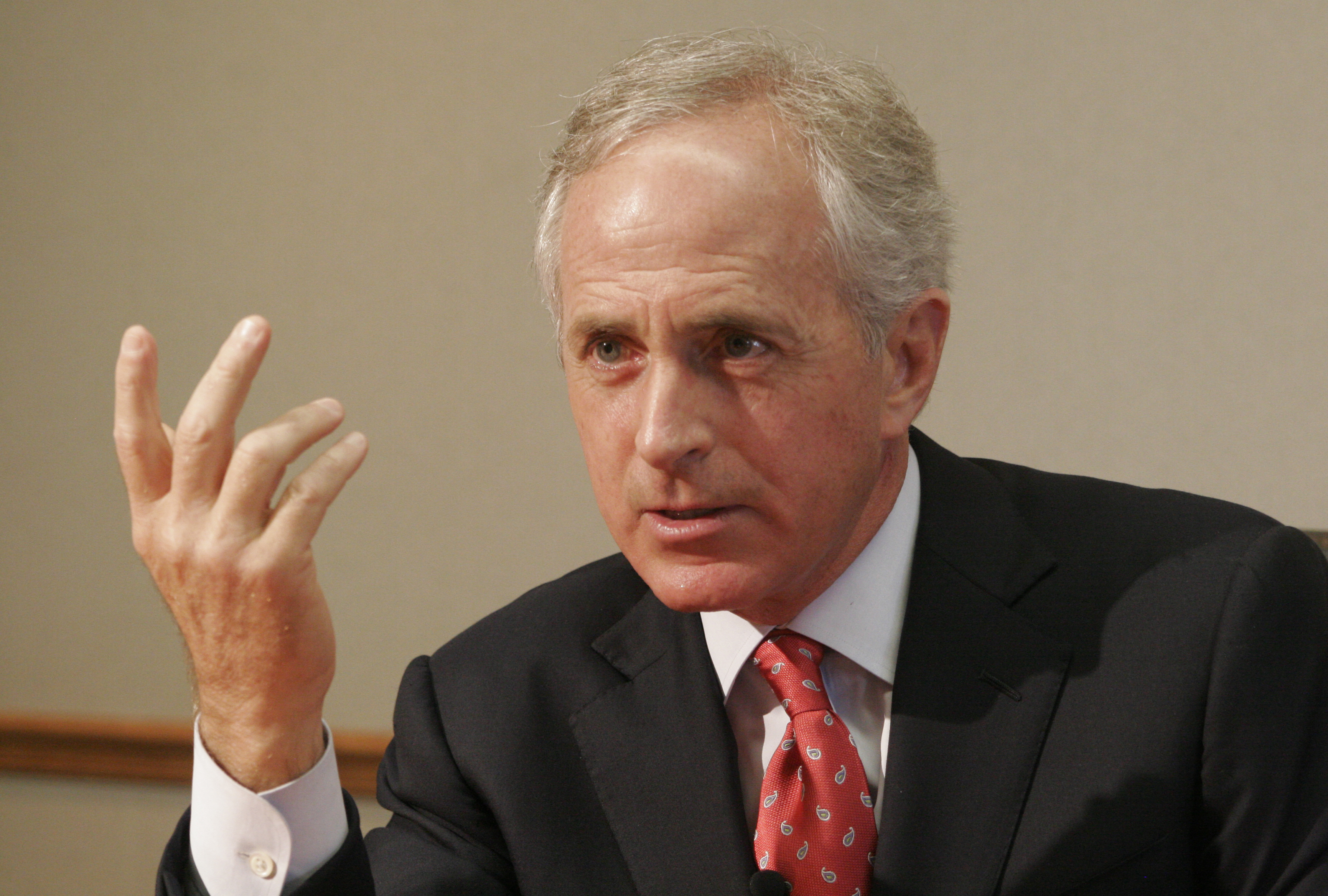RUNNING UP THE SCOREU.S. Sen. Bob Corker spent more on four campaign events than all his opponents have managed to raise collectively. Corker campaign events:• The Caucus Room, Washington, D.C.: $5,944.03• The Honors Course, Chattanooga: $5,892.43• St. John's Restaurant, Chattanooga: $3,621.64• Friars' Club, New York City: $2,380.31• Total: $17,838.41Opponents' Campaign Funds• Larry Crim (D): $3• James Durkan (R): $3,165• Brenda Shivon Lenard (R): $2,632• Grover Cleveland Mullins Jr. (D): $0• Zach Poskevich (R): $9,375• Mary Taylor-Shelby (I): $0• Total: $15,175Note: Figures current through Dec. 31.Source: Federal Election Commission
U.S. Sen. Bob Corker, R-Tenn., raked in another $1 million during the last three months of 2011, swelling his campaign balance to nearly $7.4 million.
This being an election year, you might think he needs it to fight off a well-funded Democrat.
Nope.
At the end of 2011, Larry Crim, a Nashville businessman and Democratic challenger, had $3 on hand, according to the most recent Federal Election Commission filings.
On Dec. 13, records show Corker's campaign spent more than 22 times that amount, $67.09, at a Knoxville establishment called Cachepot.
The purpose?
"Flowers for event," FEC filings show.
The disparity illustrates the distance between everybody else and Corker, a well-heeled former Chattanooga mayor who is considered a business-friendly Republican voice in Washington, D.C. Senior GOP legislators routinely celebrate his stands on fiscal issues, and a 2010 Capitol Hill confrontation with President Barack Obama over financial regulation made him a rising star in conservative circles.
Corker's ability to raise millions when he has no serious challengers highlights an unusual fundraising prowess, experts said. Corker's catering costs alone at four events swallowed up the combined total his challengers had on hand at the end of 2011.
"It shows people are willing to back you no matter what," said Vanderbilt University political science professor John Geer. "Money buys you the ability to get your message out."
At year's end, Corker's six Republican primary opponents had a combined total of $15,172 to finance their campaigns.
Tea party challenger Zach Poskevich leads with $9,375 in the bank, records show. James Durkan has $3,165, and Brenda Shivon Lenard reported $2,632 on hand.
Records show Corker's campaign spent a combined $17,838 on four private events at Chattanooga's St. John's Restaurant, New York City's Friars Club, Washington's Caucus Room and The Honors Course in Chattanooga. Corker spent at least $250,000 in the last three months of 2011, including nearly $90,000 in catering costs.
Asked for comment, Corker chief of staff Todd Womack said, "The campaign will begin in due time, and we have worked to be prepared for whatever comes, but for now, Sen. Corker is focused on advocating policies that grow our economy."
In 2006, the year Tennesseans sent Corker to the Senate, he raised $13 million to beat then-U.S. Rep. Harold Ford, a Democrat who raised $15 million during a brutal 18-month race.
Times have changed. Brandon Puttbrese, spokesman for the Tennessee Democratic Party, was unwilling to discuss potential candidates on the record. The candidate qualifying deadline is April 5.
"None of the candidates that are still considering have expressed any desire to have their names floated out there before they're ready," he said.
The political and banking establishments have backed Corker. Gov. Bill Haslam; his wife, Crissy; his father, Jim; and his brother Jimmy, who was Corker's college roommate, each have given the maximum $5,000 to Corker's re-election campaign.
Records show Corker received nearly $50,000 from political action committees of banks and financial services companies late last year. Several of his individual donors live in New York City or Washington and reported working for Goldman Sachs, JPMorgan Chase and Bank of America, reported The Tennessean newspaper.
Federal Election Commission regulations allow a candidate to use leftover campaign funds for a separate federal election.
For instance, if Corker later runs for president - a possibility he never rules out when constituents ask him about it - the money he has raised for re-election in the Senate could be used in a quest for the White House.
Tennessee's U.S. Senate primary is Aug. 2.

